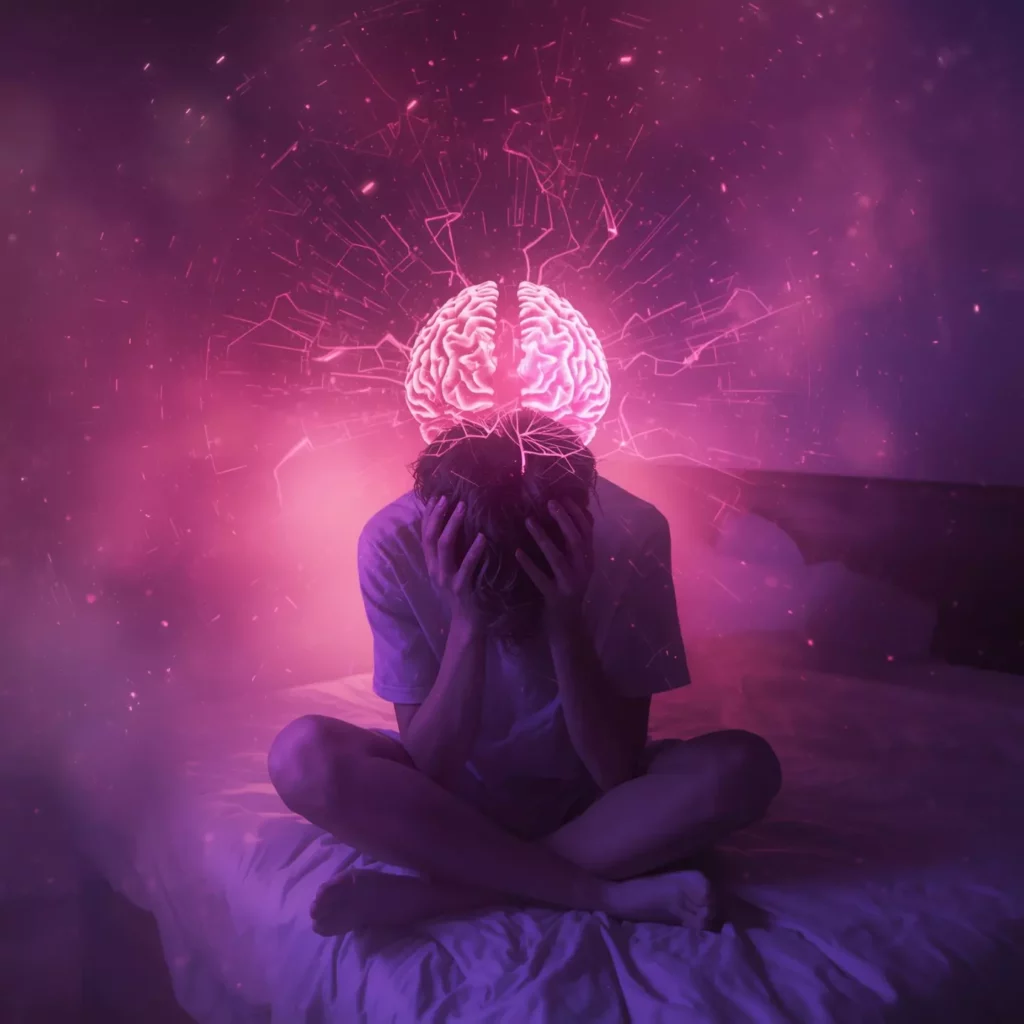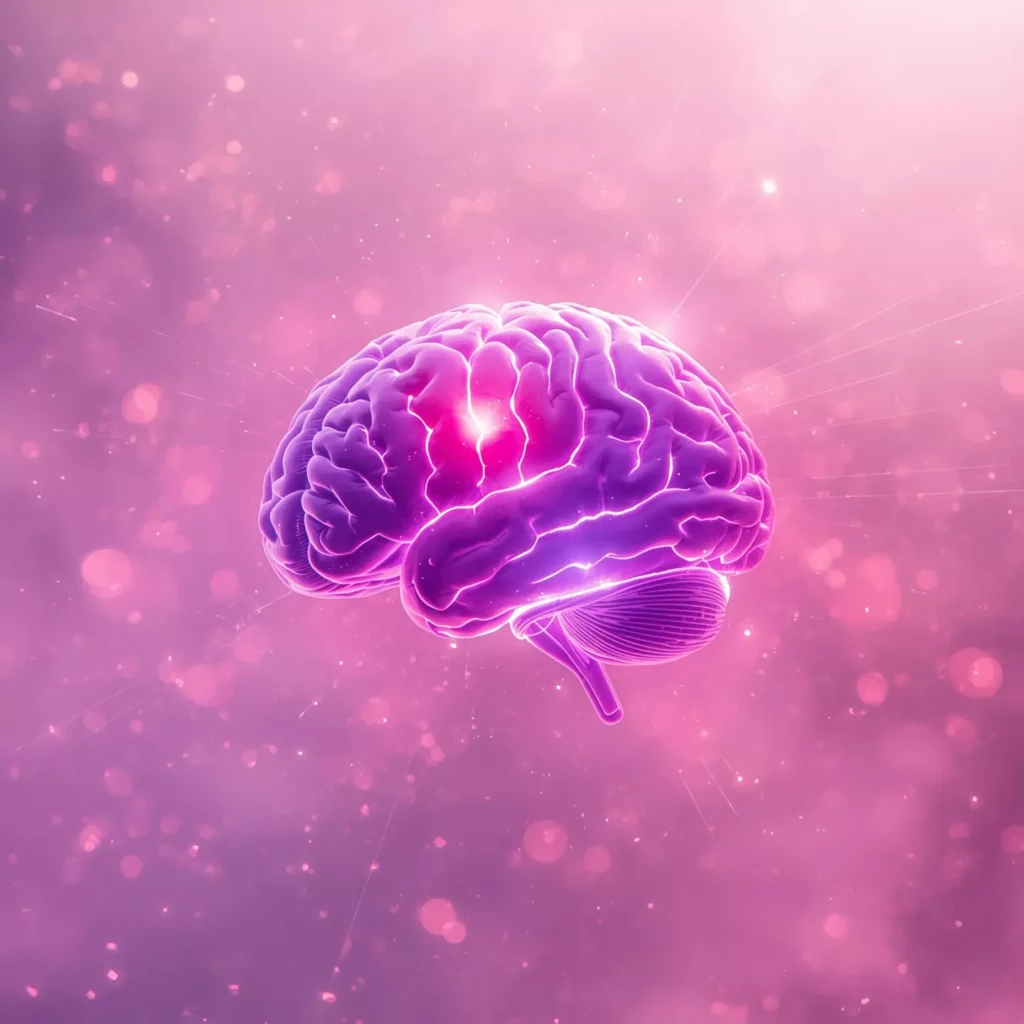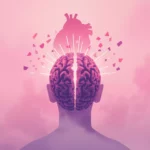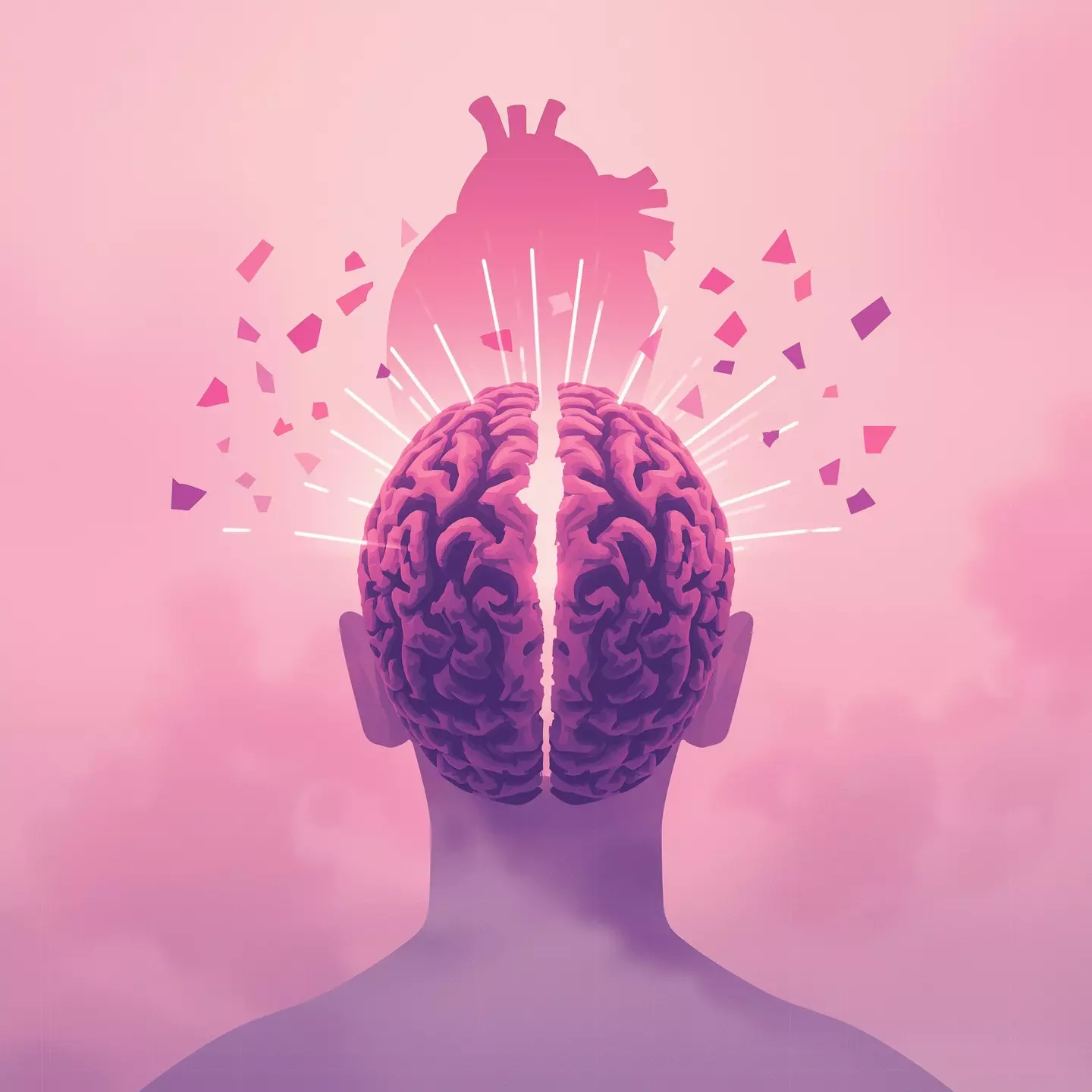Table of Contents
The day it ends, the world tilts. You wake up and the air feels heavier, the walls closer, your chest aching in a way that feels both emotional and strangely physical. People tell you “time heals” or “you’ll be fine,” but your body doesn’t believe them. Your brain is in alarm mode, and the pain is real—not imagined, not symbolic, but a measurable storm firing in the circuits of your mind. This is the first glimpse of what happens to your brain when you break up.
The Pain That Isn’t Just Emotional
Heartbreak hurts the way a burn hurts. Neuroscientists have found that the same regions of the brain that light up when you touch something sharp—the dorsal anterior cingulate cortex and the insula—also activate when you see a photo of your ex or recall being rejected.
The brain doesn’t neatly separate “social pain” from “physical pain.”
To your nervous system, being abandoned feels like injury, and it registers with the same urgency. That’s why the ache in your chest, the nausea, and the heaviness in your body are not metaphors—they are your brain processing a wound and showing you exactly what happens to your brain when you break up.

The Mental Fog of Shock
In the first hours and days after a breakup, people often feel as if they’re living underwater: conversations blur, focus slips, simple tasks suddenly feel overwhelming.
Science explains this too. Breakups disrupt working memory, impairing the brain’s ability to juggle information. Stress hormones spike, and brain regions like the anterior cingulate gyrus and precuneus struggle to regulate.
- You can’t concentrate
- You forget simple things
- You wonder if you’re losing your grip
It’s not madness. It’s your brain overloaded by sudden loss. Understanding what happens to your brain when you break up makes it clear: shock has biology behind it.

Coping with the First Month After a Breakup
Let’s examine coping with the first month after a breakup in: Shock, Panic & implosion, Managing Daily Overwhelm (Survival Mode), The No-Contact Gauntlet, Emotional Outbursts – Rage, Crying & “What Is Wrong With Me” Moments, Coping Alone vs Reaching Out and Your First Glimpse of Hope
Tap here to read more →The Craving That Won’t Stop
And then there’s the obsessive loop: the face that keeps flashing in your mind, the urge to text, the replaying of moments that refuse to fade.
Studies show that the brain’s reward circuits—the same ones triggered by addictive substances—fire relentlessly after a breakup. The nucleus accumbens, ventral tegmental area, and orbitofrontal cortex surge with craving, as if your partner were a drug you’ve been cut off from.
This is why the first month can feel unbearable. Your mind isn’t simply remembering—it’s in withdrawal. This too is part of what happens to your brain when you break up.

Healing Is Biological, Too
The first days after a breakup are not a matter of weakness or overreaction; they are the biology of loss, written into your brain’s deepest architecture.
Knowing this won’t erase the pain, but it can soften the edge of self-blame.
If you feel broken, scattered, or consumed, it’s not because you’re failing at healing—it’s because your brain is doing exactly what it was built to do when love disappears.
And slowly, as days stretch and your system recalibrates, the storm in your mind begins to quiet. The hurt is still there, but it no longer rules every heartbeat.
The brain, like the heart, knows how to mend—just not all at once.
FAQ
Q: Why does heartbreak feel like physical pain?
A: Studies show that the brain regions linked to physical pain, like the anterior cingulate cortex and the insula, also activate during social rejection. That overlap is why heartbreak can literally hurt in the body, not just in the mind.
Q: What happens to your brain when you break up?
A: A breakup triggers brain regions responsible for pain, stress, and craving. It can cause mental fog, emotional shock, and addictive-like withdrawal symptoms—making it one of the most intense emotional experiences a person can have.
Q: Why do I keep obsessively thinking about my ex after a breakup?
A: The brain’s reward and craving circuits, including the nucleus accumbens and ventral tegmental area, stay highly active after rejection. This mimics withdrawal from an addictive substance, which explains the constant replay of memories and urges to reconnect.
Q: How long does it take for your brain to recover after a breakup?
A: Recovery time varies, but research suggests that intense craving and pain circuits gradually calm over weeks to months. With coping strategies and time, the brain begins to reset, allowing focus and emotional balance to return.
FAQ
Q1. Why does heartbreak feel like physical pain?
Because the same brain regions that process physical injury, such as the anterior cingulate cortex and insula, also activate during social rejection.
Q2. What happens to your brain when you break up?
A breakup triggers brain circuits linked to pain, stress, and craving, causing mental fog, shock, and addiction-like withdrawal.
Q3. Why do I keep obsessively thinking about my ex after a breakup?
Your brain’s reward and craving circuits remain highly active after rejection, similar to withdrawal from an addictive drug.
Q4. How long does it take for your brain to recover after a breakup?
Recovery varies, but brain craving and pain responses usually calm within weeks to months as neural circuits reset.
Scientific Sources
-
Kross, E., Berman, M. G., Mischel, W., Smith, E. E., & Wager, T. D. (2011): Social rejection shares somatosensory representations with physical pain
Key Finding: Viewing photos of an ex while recalling rejection activates the same brain regions (dorsal anterior cingulate, insula) as physical pain.
Why Relevant: Explains why heartbreak feels physically painful, central to the ‘shock’ experience after a breakup.
https://www.pnas.org/doi/10.1073/pnas.1081218108 -
Verhallen, A. M., et al. (2021): Working Memory Alterations After a Romantic Relationship Breakup
Key Finding: Breakups cause stress-linked impairments in working memory, with disrupted neural activity in the precuneus and anterior cingulate.
Why Relevant: Clarifies the mental fog and inability to focus during the first month of breakup shock.
https://www.ncbi.nlm.nih.gov/pmc/articles/PMC8062740/ -
Bajoghli, H. (cited in Biology of Romantic Love summary) (2014): Biology of Romantic Love
Key Finding: Romantically rejected individuals spent 85% of waking hours thinking about their ex, with fMRI scans showing reward and craving brain regions highly activated.
Why Relevant: Explains the obsessive thoughts and addictive craving for an ex, crucial to the ‘implosion’ stage.
https://en.wikipedia.org/wiki/Biology_of_romantic_love
- The Powerful 10-Minute Grounding Practice to Calm Panic After Heartbreak

- Healing Breakup Rituals That Work: Write It, Burn It, Cry It

- Why Seeking Closure After a Breakup Hurts More Than It Heals

- The Adrenaline Crash After Breakup: Shocking Reasons You’re Shaking and Crying

- What Happens to Your Brain When You Break Up? Shocking Science Explained

- 💔 Survive the First Night After a Breakup: Powerful Ways to Heal Without Texting

- The 3-Day Rule After Breakup: Powerful Way to Heal and Let Go of Photos

- The Ultimate Emergency Breakup Checklist: Powerful Steps to Survive the Shock

- 10 Painful Mistakes in the First 24 Hours After a Breakup (and How to Avoid Them)


Leave a Reply